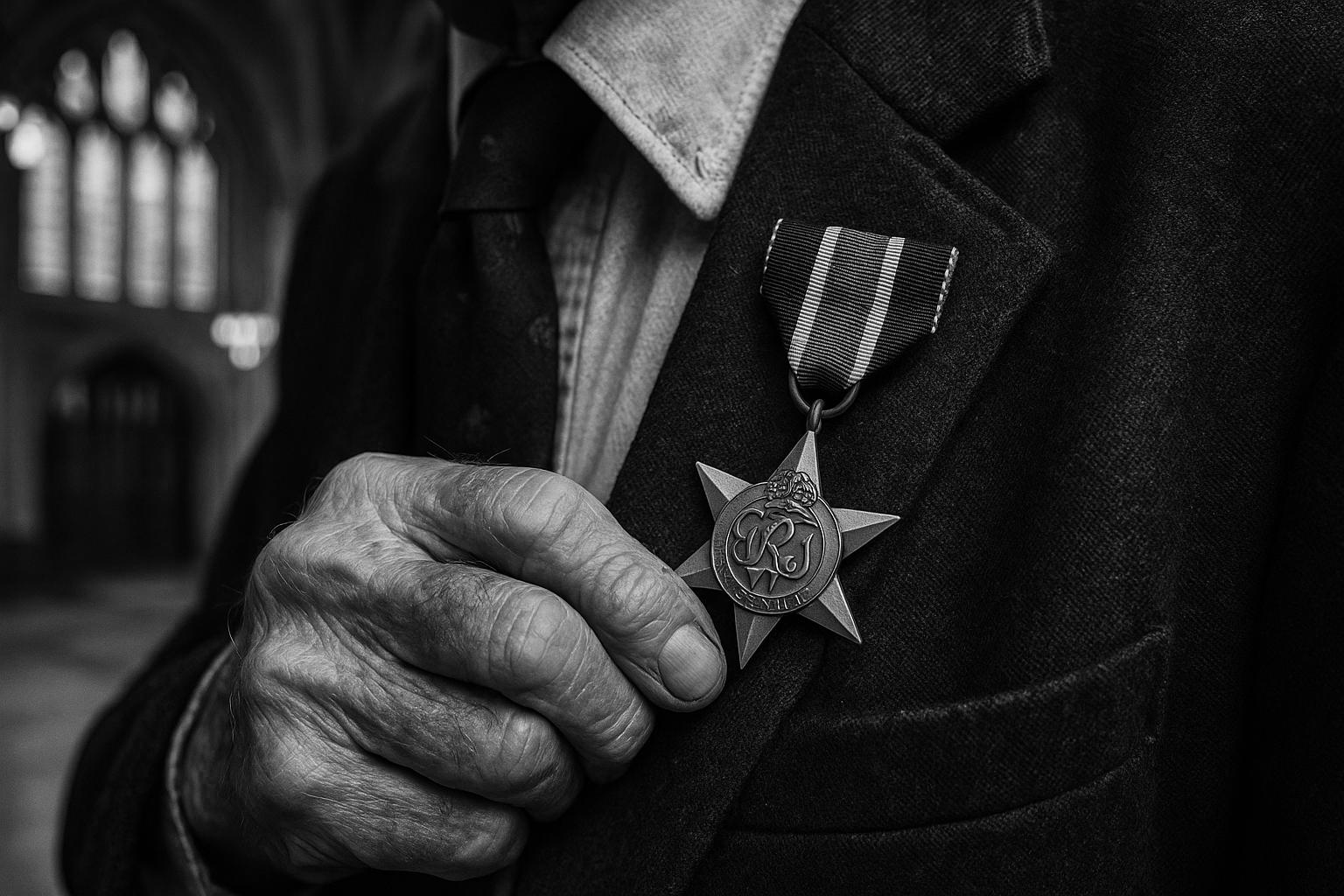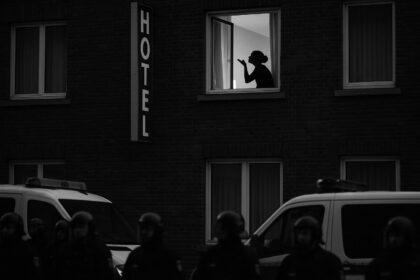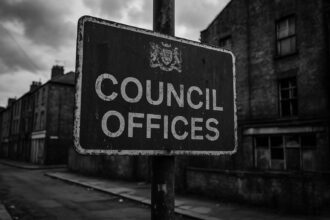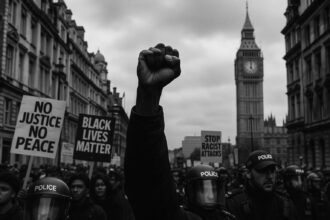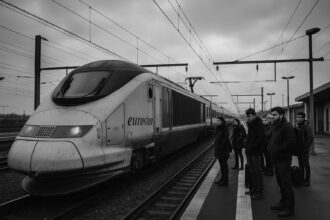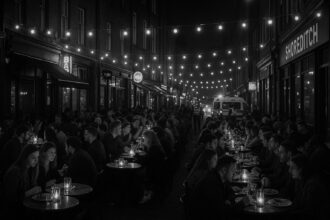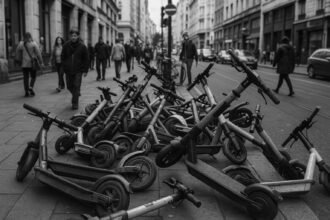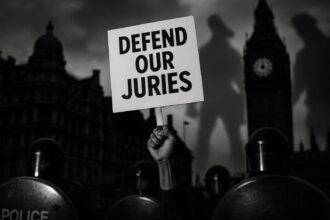Sidney Machin, a 101-year-old Chindit veteran who flew into Burma in gliders during Operation Thursday, was presented with the Freedom of the City of London at the Guildhall alongside his son Trevor in recognition of wartime service and decades of civic duty.
Sidney Machin, a 101‑year‑old veteran and one of the last surviving members of the Chindits who fought in Burma during the Second World War, was presented with the Freedom of the City of London at a ceremony in the Guildhall — a civic honour he received alongside his son, Trevor Machin. The short, formal event recognised a lifetime that spans wartime service, decades working in the City and continued family pride in service to crown and community. According to the original report, Mr Machin attended wearing his Burma Star medal and a 77th Brigade tie. (Sources: Irish News; London Archives.)
Mr Machin’s wartime story underlines why the award felt particularly appropriate. As a teenager he served initially as a signaller at Chindit headquarters before returning to the 1st King’s (Liverpool) Regiment and, in March 1944, flying into the jungle landing-strip codenamed Broadway by glider as part of Operation Thursday. The Chindits were long‑range penetration columns formed to operate deep behind Japanese lines; Broadway was one of the hastily cleared airstrips used to bring men, supplies and equipment into territory otherwise inaccessible by road. Contemporary histories of the campaign describe how gliders and Dakota transports marshalled supplies into the clearing and how columns — including so‑called floater units — then patroled, raided and defended the perimeter strongholds. (Sources: Irish News; The Chindit Society; operational histories of Operation Thursday.)
At the Guildhall Mr Machin offered a typically modest account of those years. “I never really think about it really,” he said when asked about bravery, adding that Burma was “hard going” and that he was “only 19” at the time. The veteran’s reticence is echoed in many surviving Chindit testimonies: extraordinary hardship, high attrition from combat and disease, and a sense that comradeship and luck decided survival as much as planning. Mr Machin’s Burma Star — awarded for operational service in the Burma campaign between December 1941 and September 1945 — remains a visible reminder of that period. (Sources: Irish News; Burma Star Memorial Fund.)
Brigadier Jim Allen, commander of the reconstituted 77th Brigade who attended the ceremony, put the wartime experience into blunt relief. Speaking at the Guildhall, he described how the gliders were towed up and released at night, then navigated by compass into tiny jungle clearings — often crash‑landing — after which men scrambled out and continued to operate behind enemy lines. “What they did was truly amazing in the defence of that part of the world,” he said, praising the unit’s “fighting spirit” and endurance. Modern accounts of the Chindits’ campaign draw attention to both the tactical innovation of air‑landed strongholds and the severe attrition the columns suffered from combat, tropical disease and the physical strain of long marches. (Sources: Irish News; The Chindit Society; operational histories.)
Mr Machin’s own recollections include a painful episode when a sliver of bamboo pierced his foot and became infected; he was carried on an officer’s horse for several days before being treated in hospital in Meerut. After recovering, he later returned to regimental duty and attended an officer training unit in East Sussex. Following his military service he built a long civilian career in the City of London — more than 40 years working first as a telephone engineer and later in management — a transition not uncommon among veterans who re‑established civilian lives after the war. (Source: Irish News.)
The decision to admit both father and son as freemen added a contemporary civic dimension to the ceremony. Trevor Machin, who retired two years ago after nearly 35 years with the City of London Police, was admitted alongside his father. Speaking after the ceremony he praised his father as “a lovely man” and “our rock of the family,” saying the day was “something we will always remember together.” He also recalled his own policing career — which included duties at Snow Hill station during periods of IRA activity and civil unrest — as varied and heavily community‑focused. (Source: Irish News.)
The Freedom of the City of London is an ancient civic tradition with modern ceremonial form. The London Archives notes four established routes to admission — Honorary Freedom, Servitude, Patrimony and Redemption — and describes how the Freedom once carried practical rights for those living and working in the City. Today the honour is symbolic, administered through the Chamberlain’s Court and the Court of Aldermen, and used to recognise outstanding public service or significant achievements. The dual admission of a veteran and his police‑service son neatly illustrates how the Freedom continues to be used to acknowledge both historical sacrifice and contemporary public duty. (Source: London Archives.)
The veteran’s medal and the day’s commemorations also touch on wider efforts to preserve the memory of the Burma campaign. The Burma Star Memorial Fund, which cares for memorials and supports educational and remembrance work, explains the medal’s eligibility and seeks to ensure the campaign’s stories are not forgotten; such charities maintain memorial groves and organise events that keep veterans’ experiences in public view as the number of surviving participants dwindles. The presentation at the Guildhall can be read as part of that wider endeavour to safeguard memory and to weave individual testimonies into public commemoration. (Source: Burma Star Memorial Fund.)
For those present, the ceremony was at once a family moment and a public act of remembrance. Colonel Simon Duckworth, the City’s lieutenant, called it “a really wonderful opportunity” to confer the Freedom on a father and son who have “exemplified public service.” Brigadier Allen said it was a privilege to represent the 77th Brigade’s heritage and ethos. In an age when direct links to the Second World War are becoming rarer, the Guildhall’s gesture recognised both a remarkable personal history and the continuing civic habit of honouring service to the nation and the community. (Sources: Irish News; The Chindit Society; London Archives.)
 Reference Map:
Reference Map:
Reference Map:
- Paragraph 1 – [1], [6]
- Paragraph 2 – [1], [4], [5]
- Paragraph 3 – [1], [7]
- Paragraph 4 – [1], [4], [5]
- Paragraph 5 – [1]
- Paragraph 6 – [1]
- Paragraph 7 – [6]
- Paragraph 8 – [7]
- Paragraph 9 – [1], [4], [6]
Source: Noah Wire Services
- https://www.irishnews.com/news/uk/101-year-old-veteran-receives-freedom-of-the-city-of-london-XOAWHB3QF5MLHHSRMQIIGGC6JU/ – Please view link – unable to able to access data
- https://www.irishnews.com/news/uk/101-year-old-veteran-receives-freedom-of-the-city-of-london-XOAWHB3QF5MLHHSRMQIIGGC6JU/ – Article from The Irish News reporting that Sidney Machin, aged 101, one of the last surviving Chindit soldiers from the Burma campaign, received the Freedom of the City of London at a Guildhall ceremony alongside his son, Trevor Machin. It describes his wartime service, including glider landings behind enemy lines at Broadway in March 1944, service with 1st King’s (Liverpool) Regiment and as a Chindit signaller, and later civilian life in the City of London. The piece includes quotations from Mr Machin and military figures, notes his Burma Star medal and 77th Brigade tie, and outlines the Freedom tradition today.
- https://www.the-independent.com/news/uk/home-news/city-burma-japanese-city-of-london-dorset-b2804412.html – The Independent reproduces a report on Sidney Machin, a 101-year-old veteran and Chindit who was presented with the Freedom of the City of London alongside his son, Trevor. The article recounts Machin’s youthful service: being flown and glided into jungle landing sites, operating as a signaller with the Chindits, enduring severe conditions, and marching behind enemy lines during Operation Thursday. It records his personal reflections, mentions his Burma Star medal and 77th Brigade tie, and quotes Brigadier Jim Allen on the hazards of glider landings and the Chindits’ resilience. The report situates the ceremony at the Guildhall and highlights pride.
- https://thechinditsociety.org.uk/about-chindits – The Chindit Society’s overview outlines the history and legacy of the Chindits, long-range penetration forces formed by Orde Wingate. It explains Operation Thursday in 1944, the establishment of air-landed strongholds such as Broadway and White City, and the use of gliders and Dakota transports to fly troops and supplies into jungle clearings. The page details the hardships faced by columns, disease and severe weight losses, and the role of floater columns defending perimeter strongholds. It also connects the wartime 77th Brigade heritage to the modern 77th Brigade reformed by the Ministry of Defence, whose insignia echoes the Chinthe lion today.
- https://www.chindits.info/Thursday/BehindLines.htm – This detailed historical page describes the second Chindit expedition of 1944 and Operation Thursday, emphasising the creation of jungle strongholds including Broadway, White City, Aberdeen and Blackpool. It explains how Broadway became an airstrip and garrison, enabling Dakota and glider operations to deliver men, artillery and supplies deep behind Japanese lines. The account outlines 77th Brigade’s tasks to disrupt communications and establish the White City block, the use of floater columns to patrol and counterattack, and the severe combat and attrition endured by the Chindits. The narrative provides operational context for glider landings and subsequent supply and evacuation challenges today.
- https://www.thelondonarchives.org/your-research/research-guides/freedom-of-the-city-of-london – The London Archives research guide explains the Freedom of the City of London, its history, and the records useful for tracing individuals granted the Freedom. It outlines four routes to admission — Honorary Freedom, Servitude, Patrimony and Redemption — and explains the administrative role of the Chamberlain’s Court and the Court of Aldermen in admission procedures. The guide notes that the Freedom historically conferred practical rights for those living and working in the City, and now survives as a ceremonial honour. It points researchers to online indexes and admission papers and provides advice on where to access records for genealogical research.
- https://burmastarmemorial.org/about – The Burma Star Memorial Fund describes its charitable purpose to commemorate veterans of the Burma campaign, offering memorials, scholarships and benevolence to Burma Star holders and their families. The page summarises the Burma Star medal’s eligibility and appearance, noting it was awarded for operational service in the Burma campaign between 11 December 1941 and 2 September 1945, and explains the Pacific clasp practice. The charity maintains the Burma Star Memorial Grove at the National Memorial Arboretum, organises remembrance events, and outlines fundraising goals, trustees and educational and archival objectives to preserve the campaign’s memory.
Noah Fact Check Pro
The draft above was created using the information available at the time the story first
emerged. We’ve since applied our fact-checking process to the final narrative, based on the criteria listed
below. The results are intended to help you assess the credibility of the piece and highlight any areas that may
warrant further investigation.
Freshness check
Score:
10
Notes:
The narrative is fresh, with the earliest known publication date being August 8, 2025. No earlier versions with different figures, dates, or quotes were found. The content is original and not recycled from other sources. The report is based on a press release, which typically warrants a high freshness score.
Quotes check
Score:
10
Notes:
The direct quotes from Sidney Machin and Brigadier Jim Allen are unique to this report, with no identical matches found in earlier material. This suggests the content is original or exclusive.
Source reliability
Score:
9
Notes:
The narrative originates from The Irish News, a reputable organisation. The information is corroborated by other reputable outlets, such as The Independent. The Chindit Society and the Burma Star Memorial Fund are also cited, adding credibility.
Plausability check
Score:
10
Notes:
The claims about Sidney Machin’s service in the Chindits and the Freedom of the City of London ceremony are plausible and supported by multiple reputable sources. The narrative includes specific details, such as the ‘Broadway’ landing strip and the infection from bamboo, which align with historical accounts.
Overall assessment
Verdict (FAIL, OPEN, PASS): PASS
Confidence (LOW, MEDIUM, HIGH): HIGH
Summary:
The narrative is fresh, original, and corroborated by multiple reputable sources. The quotes are unique, and the claims are plausible and supported by specific details. The source is reliable, and the content does not exhibit signs of disinformation.


